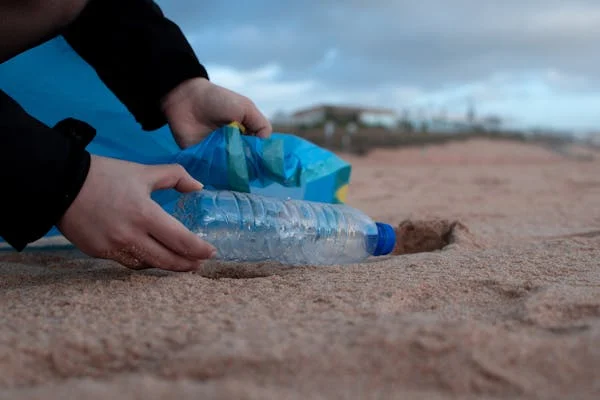This article talks about how to reduce waste in daily life, including strategies like zero-waste shopping, composting, upcycling, and cutting down on single-use plastics. The idea of zero waste is seen as a promising solution for a more environmentally friendly future in the present-day world, where environmental issues are at the forefront of global conversations. It is a lifestyle choice that many individuals and communities have enthusiastically adopted, not just a temporary fad. But what does zero waste actually involve, and how can we successfully incorporate it into our everyday lives? To help you shift to a greener lifestyle, we’ll discuss zero-waste living basics, benefits, tips, and FAQs.

What is zero waste?
Zero waste is more than just a catchy phrase; it is a philosophy and way of life focusing on reducing waste output while increasing resource efficiency. At its root, it is about redefining our relationship with consumption and trash, with the ultimate objective of avoiding landfills and incinerators altogether. Instead, zero waste advocates for measures like reducing, reusing, recycling, and composting to reduce our environmental impact and provide a more sustainable future for future generations.
Benefits of Zero Waste Living:
Adopting a zero-waste lifestyle has numerous advantages, both for humans and the planet we call home:
- Environmental Preservation: We can help save valuable natural resources, lessen pollution, and lessen the effects of climate change by cutting back on the use of single-use items and producing garbage.
- Cost Savings: Adopting a zero-waste lifestyle over time can also result in significant cost savings. We can significantly cut down on our expenses for single-use items by giving preference to long-lasting, reusable options instead of throwaway ones.
- Health & Well-Being: A lot of throwaway items include dangerous chemicals and additives that can be bad for people’s health. We can make our homes healthier for our families and ourselves by choosing natural, environmentally friendly choices.
- Community Engagement: Collaboration and community engagement are frequently linked to adopting a zero-waste lifestyle. There is a sense of unity and shared purpose that comes from working toward common sustainability goals, whether it be through supporting eco-friendly businesses, organizing zero-waste events, or taking part in local composting programs.
Practical Advice for Living a Zero Waste Lifestyle:
Although adopting a zero-waste lifestyle takes time, it is completely doable with commitment and small, doable actions. The following useful advice will get you started on the path to zero-waste living:
Minimize single-use plastics:
Choose items with less plastic packaging to lower plastic consumption. Opt for compostable or recyclable packaging, or buy in bulk to reduce waste. Additionally, you can consciously try to recycle any plastic packages, bottles, and containers that you do use. To guarantee that your recyclables are processed appropriately, make sure you clean and sort them in accordance with your local recycling regulations. Additionally, think about endorsing companies and labels that place an emphasis on eco-friendly and sustainable operations. Seek out businesses that offer refillable solutions, use recycled materials, or have taken steps to lessen their environmental impact.
By making these small changes in your daily life, you can help reduce your plastic consumption and contribute to a healthier planet for future generations. Remember, every little bit counts, and together we can make a difference in reducing plastic waste and protecting our environment.
Adopt minimalism:
Excellent advice for living a green life! Put quality and adaptability first when purchasing items to reduce waste. Sort things out and use simple packaging. Recycle wisely and patronize nearby environmentally conscious companies. To cut down on packing waste, buy in bulk. Little adjustments have a significant effect on the ecosystem. Go green and lead a sustainable lifestyle.
Compost organic waste:
Consider setting up a backyard composting system or researching community composting initiatives to keep food scraps and yard waste separate from the garbage. Composting produces soil that is rich in nutrients for gardening and landscaping, in addition to reducing garbage.
Select Eco-Friendly Substitutes:
Examine more environmentally friendly options for commonplace items, including cloth diapers, reusable menstrual products, and biodegradable cleaning supplies. To confirm a product’s environmental credentials, look for certification from credible eco-labels or organizations.
Educate and Speak Up: Give others in your neighborhood access to your expertise and enthusiasm for living a zero-waste lifestyle. Educating people about the value of sustainability—through social media, neighborhood seminars, or talks with loved ones—can spur constructive change on a larger scale.
Zero Trash Outside the House
Many of the routines you adhere to within your home might also be applied outside of it. Here are some zero-waste ideas to help you improve your trash-crashing abilities.
When dining out, pick establishments that serve actual meals to save yourself the waste that comes with fast food. Bring your own stainless steel food kit to fill if you’re on the run and want to stop at a food seller to save time. To reduce waste, you can also carry reusable drinking containers or tote straw-equipped stainless steel cups. Think about packing a washable travel napkin and some reusable bamboo cutlery in your car or backpack. They are easy to clean and lightweight.
FAQs
Is living a zero-waste lifestyle achievable for everyone?
Everyone can reduce their waste footprint and adopt more sustainable practices, even though reaching zero waste perfection may be difficult. Progress, not perfection, is what matters, so begin with little adjustments and gradually gain traction.
What happens if I can’t access specific zero-waste resources?
There are many ways to cut waste in your daily life, even if you don’t have access to bulk markets or composting facilities. Prioritize cutting back on consumption, reusing things as much as you can, and recycling properly. Use your imagination to find do-it-yourself composting and waste-reduction strategies.
How can I encourage people to travel with me toward a zero-waste lifestyle?
Set an example for others to follow, and tell your friends, family, and neighbors about your quest for zero-waste living. Show others compassion and tolerance while providing them with tools and assistance to enable them to achieve long-lasting improvements in their own lives.
Adopting a zero-waste lifestyle involves more than just reducing our environmental footprint; it also involves rethinking how we relate to trash and consumption in order to benefit present and future generations. Every one of us can contribute to the creation of a more resilient and sustainable planet by choosing carefully what we eat, how we dispose of waste, and the legacy we leave behind. Let’s set out on this path of zero-waste living together, where each decision we make will contribute to a more promising and environmentally friendly future for all.


